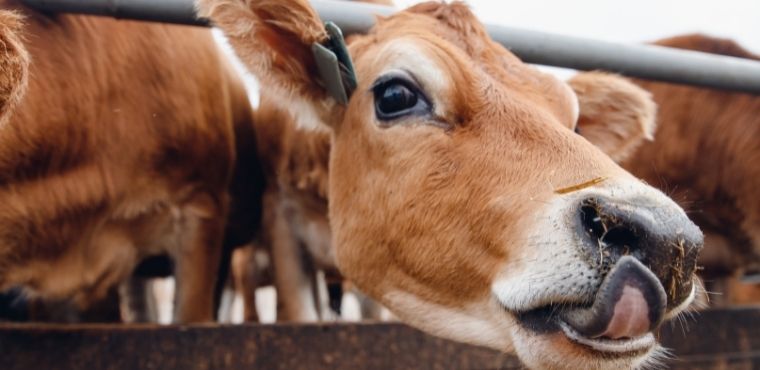As summer approaches, farmers might feel trepidation towards their cowherd as the temperatures outside slowly rise. With high heat and stifling temperatures on some days, you must keep your cattle healthy this summer. Use our tips, and you’ll find success in keeping your livestock comfortable and safe during the warmer months.
Offer as Much Shade as Possible
To give the cattle a break from the direct sunlight, offer a shady spot near the middle of the pen. Putting the shady space in the middle of the pen provides more shade for a longer part of the day. This is because the sun moves in the sky, changing the direction of the shade; thus, having shade in the middle allows there to be shade that is easily accessible and available at all times of the day.
Have High-Quality Forage
When a cow digests food, it produces heat, while a higher-quality forage produces less heat as the cow digests. Due to the high temperatures, your cattle might not be willing to eat, so feed them in the early morning or late evening when the temperatures are at their coolest. Don’t start feeding too late in the morning, because by the time the sun reaches its highest point and highest temperature, the cow will also be at its peak point of digestion, thus producing more heat.
Have the Appropriate Amount of Water
The performance of your cattle can be affected by the water they drink. Watch out for the weather, because as the heat rises, the more water your cows must drink. A rule of thumb to follow is that when the temperature is above 90 degrees, a cow will need 4 gallons of water per 100 pounds, meaning a heavier cow could need upward of 20 gallons of water in just one day!
Watch for High Heat Stress
If you are raising your cattle for auction, their weight matters. Consider buying a livestock scale to accurately monitor your cattle and their high heat stress levels. Doing this also helps you watch their stress levels; you never want to overwork or push a cow in extreme temperatures. It is best to let them rest, or they might die from exhaustion, heat, or lack of feed or water.
Work Cattle in the Early Morning or Late Evening
When you work your cattle and perform your routine health measures, do this during a time when it is cooler, so it puts less stress on the herd. Take portions at a time instead of bunching the cattle in one area where it can get hot. The summer is more about keeping your livestock comfortable and less about working and moving them.
Make it a top priority to keep your cattle healthy this summer, so your livestock is healthy and well-maintained when fair season and auctions arrive. Never overwork them, and instead, offer tons of shade, water, and forage. When you notice the heat rising, check in every so often to ensure there are no underlying problems at stake for the healthiest cowherd.






